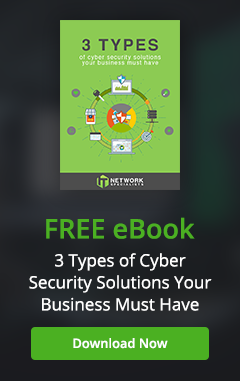Today, just installing anti-malware software and a firewall on your computer isn’t enough to keep you safe as you use the internet. Nowadays, a hacker can intercept messages sent to and from your computer and steal the data they contain. This is why you need a virtual private network (VPN).
What is a VPN?
A VPN creates a secure tunnel between your device and the websites you visit, protecting you from hackers looking to intercept your data.
Why you need a VPN and how to choose the right one
Ignore these outdated disaster recovery myths
Disaster recovery (DR) used to be an expensive solution that relied predominantly on tape backups. Today, cloud computing has dramatically changed the DR landscape, affording even small- and medium-sized businesses cheaper and more reliable DR solutions.
Steps to implementing a proactive cybersecurity strategy
Despite the large number of cybersecurity incidents being reported every day, many businesses still fail to put adequate cybersecurity measures in place to keep their data and operations secure. If you’re looking to beef up your company’s cyber defenses, consider a proactive cybersecurity strategy.
Top tips when selecting an MSP for your business
Technology underpins nearly every aspect of modern business processes. Managing it, however, can be complex and tedious. This is where managed IT services providers (MSPs) can help. Whether your company needs software solutions, network infrastructure management services, or cloud technology, MSPs can provide all this and more.
How to keep your email account safe
Many businesses use email to send and receive sensitive information, making it an attractive target for cyberattacks. To reduce your exposure to cyberthreats, implement the following email security measures.
Use separate email accounts
Most people use a single email account for all their online tasks.
Here’s why your SMB needs a business continuity plan
A variety of untoward events can disrupt the operations of small- to medium-sized businesses (SMBs), including natural disasters or cyberattacks. These incidents can cause SMBS to lose revenue, or in some extreme cases, close permanently. Fortunately, having a concrete business continuity plan (BCP) in place will help your business recover quickly after a disaster.
It’s time to rethink your password strategy
In 2003, the National Institute of Standards and Technology (NIST) stated that strong passwords should consist of upper- and lowercase letters, numbers, and symbols. However, the institute has now reversed its stance. Find out why and learn what their new recommendations are.
6 Ways to enhance your website’s design
Making an outstanding website is not just about aesthetics. It’s also about giving site visitors and customers a great user experience while they browse your products and services. Having a good website is especially important now that people spend way more time browsing and shopping online than ever.
Here’s what to remember when buying antivirus software
It’s essential to have antivirus software installed on your business computers to protect these against viruses, malware, ransomware, and spyware, among others. However, not all antivirus programs are created equal. If you’re looking for the best antivirus software, consider the following points.
Top reasons why business continuity plans fail
In the event of a disaster, businesses must make sure that their servers and data are safe. Many companies, however, wrongly assume that merely having data backups guarantees business continuity. Here are other top mistakes companies should avoid when preparing for the worst-case scenario.

